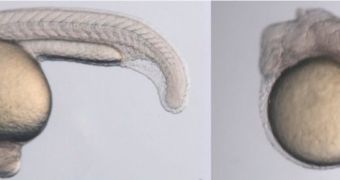A group of researchers from the Carnegie Institution for Science in Washington (CISW) discovered in a new study conducted on zebrafish embryos that the polyunsaturated fatty acid metabolism plays an important role in allowing different types of tissue to differentiate and evolve in the correct order.
Developmental biologists have been trying to determine the exact mechanism underlying this trait of complex organisms for quite some time, but thus far their progress has been slow. One of the signaling pathways involved in correct tissue type differentiation has been discovered, but did not hint at the role fatty acids played in the process.
In a paper published in the December 12 online issue of the esteemed journal Developmental Cell, CISW experts led by professor Steven Farber demonstrate that fatty acids play an important role in embryos, primarily as energy sources, raw building materials for cell membranes, and devices for inter-cellular communications.
“By connecting polyunsaturated fatty acid metabolism with a fundamental signaling pathway in the early embryo, our study provides a clue as to why they are so critical. These results lay the groundwork for further research on polyunsaturated fatty acid metabolism and its various roles in development and disease,” Farber says of the new work.

 14 DAY TRIAL //
14 DAY TRIAL //